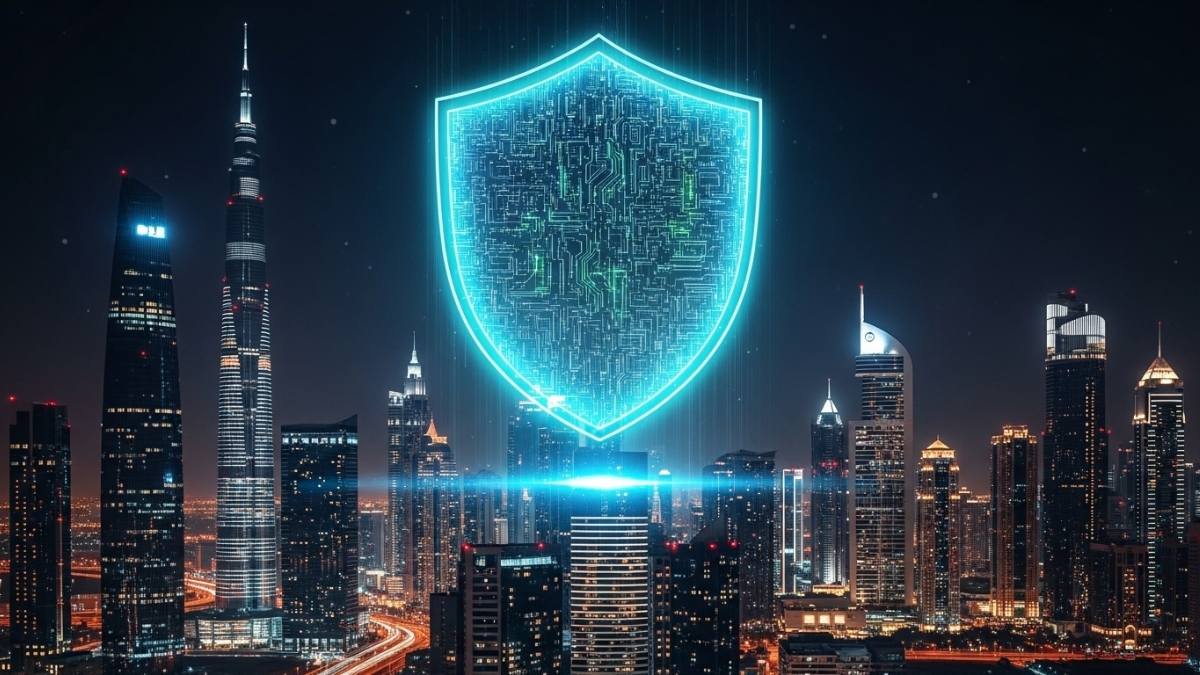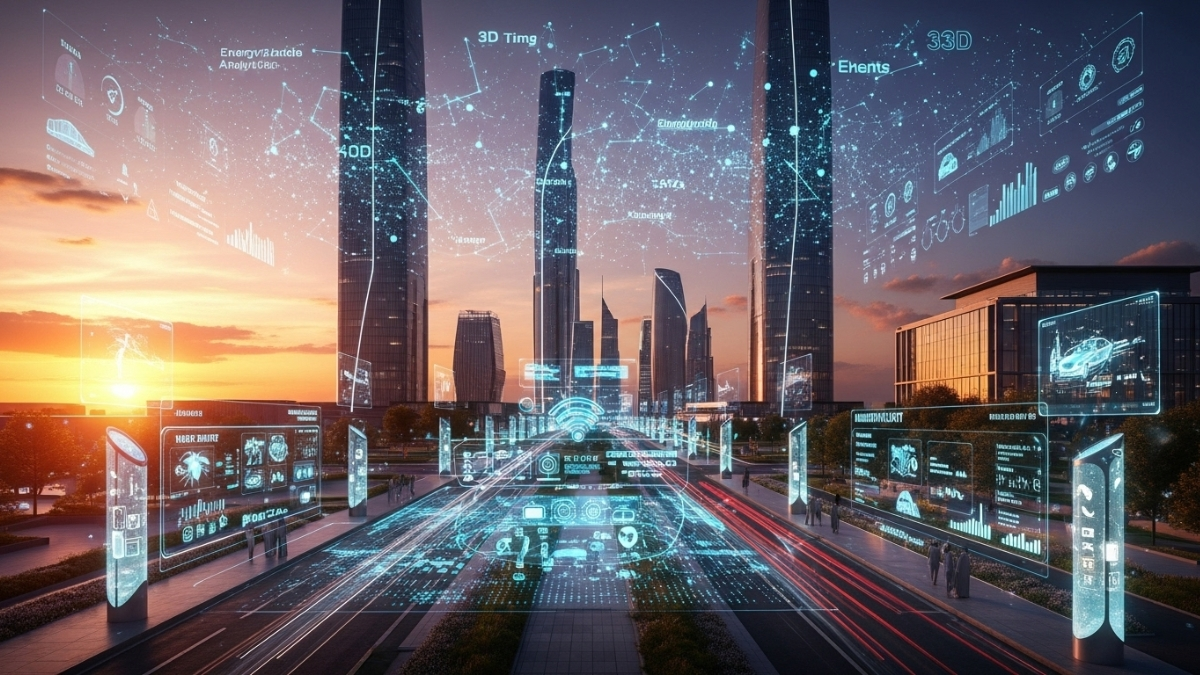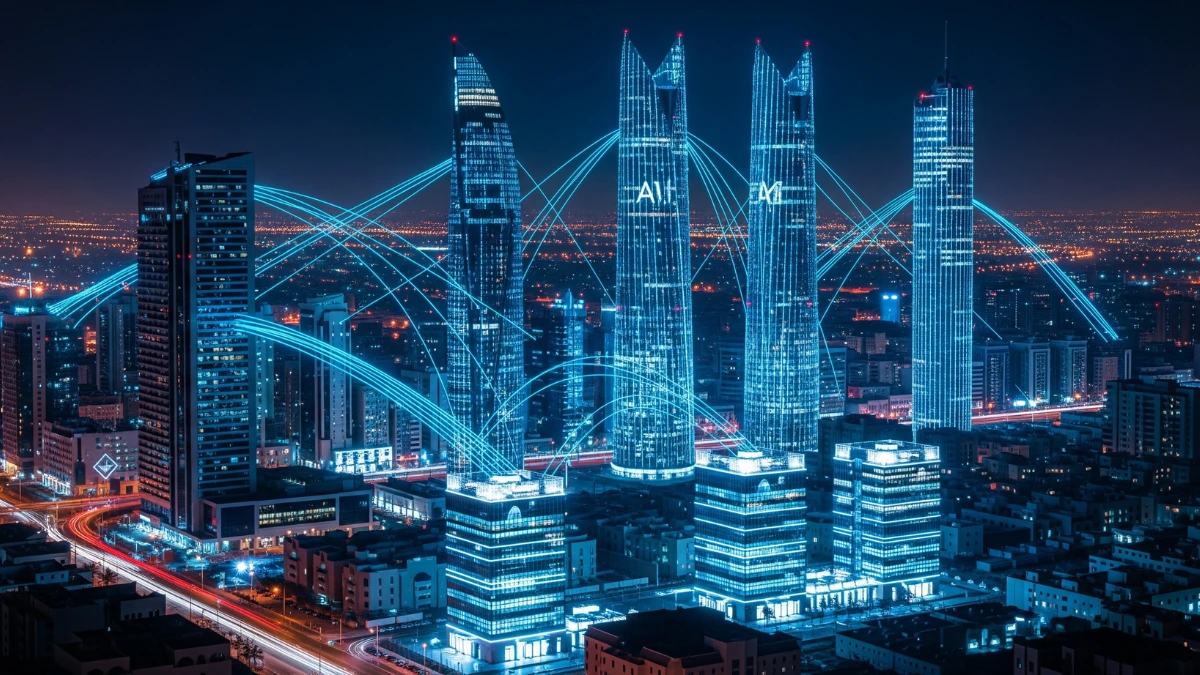I’ve been watching the cybersecurity landscape evolve across the Gulf, and honestly, it feels like we’re living in a sci-fi movie. Just last month, while having coffee with a friend who works in Dubai’s tech sector, he told me about the latest AI security measures his company implemented. It got me thinking about how dramatically our digital protection has transformed—and how crucial it’s become for our region.
The Gulf states are experiencing a digital revolution that’s reshaping everything from how we bank to how we commute. But with this incredible connectivity comes unprecedented risks. Cyber threats aren’t just abstract concerns anymore; they’re real challenges that could impact our daily lives, our businesses, and our national infrastructure.
What excites me most is seeing how artificial intelligence is stepping up to meet these challenges head-on. Across Saudi Arabia, UAE, Qatar, and other Gulf nations, AI-powered cybersecurity solutions are becoming our digital guardians, working around the clock to protect what matters most to us.
Zero-Trust Security: The New Digital Fortress
Remember when we used to think of cybersecurity like a castle with high walls? You were either inside (safe) or outside (dangerous). Those days are over, especially here in the Gulf where our energy, finance, and transportation sectors are becoming increasingly interconnected.
Zero-trust security models powered by AI have completely changed this game. Instead of assuming anyone inside the network is trustworthy, these systems question everything and everyone, every single time. It’s like having a highly intelligent security guard who never takes a break, never gets tired, and remembers every suspicious pattern they’ve ever seen.
In the energy sector—which is absolutely vital for our region—AI-driven zero-trust systems are protecting oil refineries, power grids, and renewable energy installations. These systems continuously verify user identities, monitor device behavior, and analyze network traffic patterns. If something seems even slightly off, they act immediately.
The financial sector has embraced this approach with remarkable results. Banks across the Gulf are using AI to create dynamic security perimeters that adapt in real-time. When I transfer money through my banking app, sophisticated algorithms are working behind the scenes, analyzing my behavior patterns, location data, and transaction history to ensure it’s really me making that transfer.
What makes this particularly powerful is how these AI systems learn and evolve. They don’t just follow pre-programmed rules; they adapt based on new threats and changing patterns. It’s like having security that gets smarter every day.
IoT Growth: More Connections, More Risks
Walking through Dubai Mall or King Abdulaziz Road in Riyadh, you’ll notice how connected everything has become. Smart parking meters, intelligent traffic lights, automated building systems—the Internet of Things (IoT) is everywhere. While this connectivity makes our lives more convenient, it also creates new vulnerabilities.
Each connected device is potentially a doorway for cybercriminals. Your smart thermostat, your car’s navigation system, even the coffee machine in your office—they’re all part of a vast network that needs protection. Traditional security approaches simply can’t keep up with this complexity.
This is where collaborative sensing networks come in. Imagine all these IoT devices working together like a neighborhood watch program. When one device detects something suspicious, it immediately alerts the network, and AI algorithms analyze the threat across all connected systems simultaneously.
In smart city initiatives across the Gulf, these collaborative networks are proving incredibly effective. Traffic management systems in Dubai can detect and respond to cyber threats before they impact traffic flow. Smart grid systems in Saudi Arabia use collective intelligence to protect power distribution even when individual components are under attack.
The beauty of this approach is its speed. While a human security analyst might take hours to identify and respond to a threat, these AI-powered networks can detect, analyze, and counter threats in milliseconds.
Dubai’s AI Patrols: Setting New Standards
Dubai never fails to impress me with its forward-thinking approach to technology. The Dubai Police’s implementation of AI-powered patrols for live monitoring represents something truly groundbreaking—not just for the UAE, but as a model for urban cybersecurity worldwide.
These aren’t just cameras with fancy software. Dubai’s AI patrol systems use advanced machine learning to monitor digital and physical security simultaneously. They can identify suspicious online activities, detect potential cyber threats to city infrastructure, and even predict where digital attacks might occur next.
What fascinates me most is how this system learns from our city’s unique patterns. It understands the normal digital rhythm of Dubai—from rush hour data flows to late-night online activity patterns. When something deviates from these established norms, the system immediately alerts human operators.
The live monitoring capability means threats are addressed in real-time. Whether it’s an attempted hack on a government system or suspicious activity around critical infrastructure, the AI can coordinate responses across multiple agencies instantly. It’s like having a digital nervous system protecting the entire city.
This approach is already influencing cybersecurity strategies across other Gulf capitals. Abu Dhabi, Doha, and Riyadh are all developing similar AI-powered monitoring systems, each adapted to their unique urban characteristics and security needs.
Massive Investments Driving Innovation
The numbers behind the Gulf’s cybersecurity transformation are staggering. The $92 billion in US-Middle East collaborations focused on quantum and AI security innovations represents one of the largest technology investments in our region’s history.
These aren’t just government expenditures; they’re strategic investments in our digital future. Saudi Arabia’s NEOM project, for instance, is building cybersecurity infrastructure from the ground up, using AI and quantum technologies that haven’t been deployed anywhere else at this scale.
The UAE’s AI Strategy 2031 allocates significant resources to cybersecurity applications, with particular focus on protecting smart city infrastructure and financial systems. Qatar’s National Cybersecurity Strategy emphasizes AI-driven threat detection for its energy sector and sports infrastructure.
What excites me about these investments is how they’re creating a ripple effect. International tech companies are establishing regional headquarters in the Gulf, bringing cutting-edge cybersecurity expertise directly to our doorstep. This knowledge transfer is accelerating our local capabilities and creating new opportunities for Gulf-based cybersecurity professionals.
The focus on quantum security is particularly intriguing. While quantum computing promises incredible computational power, it also threatens to make current encryption methods obsolete. Gulf nations are preparing for this quantum future by developing AI systems that can work with quantum-resistant security protocols.
Why This Matters for Our Digital Future
Living and working in the Gulf means being part of one of the world’s most ambitious digital transformation stories. From Saudi Arabia’s Vision 2030 to the UAE’s smart city initiatives, we’re building connected societies that depend entirely on robust cybersecurity.
AI-powered cybersecurity isn’t just about protecting data—it’s about preserving the trust that makes our digital lifestyle possible. When I use my phone to pay for coffee, book a ride, or access government services, sophisticated AI systems are working to ensure these interactions remain secure and private.
The collaborative approach emerging across Gulf nations is particularly encouraging. Cyber threats don’t respect borders, and our response shouldn’t either. Shared threat intelligence, coordinated AI systems, and joint cybersecurity initiatives are making the entire region more resilient.
As we move forward, the integration of AI and quantum technologies will only deepen. The investments and innovations happening now are laying the foundation for cybersecurity systems that can protect not just current threats, but evolve to meet challenges we haven’t even imagined yet.
Our region is becoming a global leader in AI-powered cybersecurity, and honestly, that makes me optimistic about our digital future. We’re not just keeping up with technological change—we’re helping to define what secure, connected societies look like in the 21st century.

Hi, I’m Amir Sohel Sk, a writer with 4 years of experience working in news companies, focusing on the automobile and tech industries. I cover the latest car launches, technology updates, and industry trends, delivering accurate and engaging content for readers who love innovation. My passion lies in breaking down complex topics into clear insights that help audiences stay informed and ahead of the curve.









